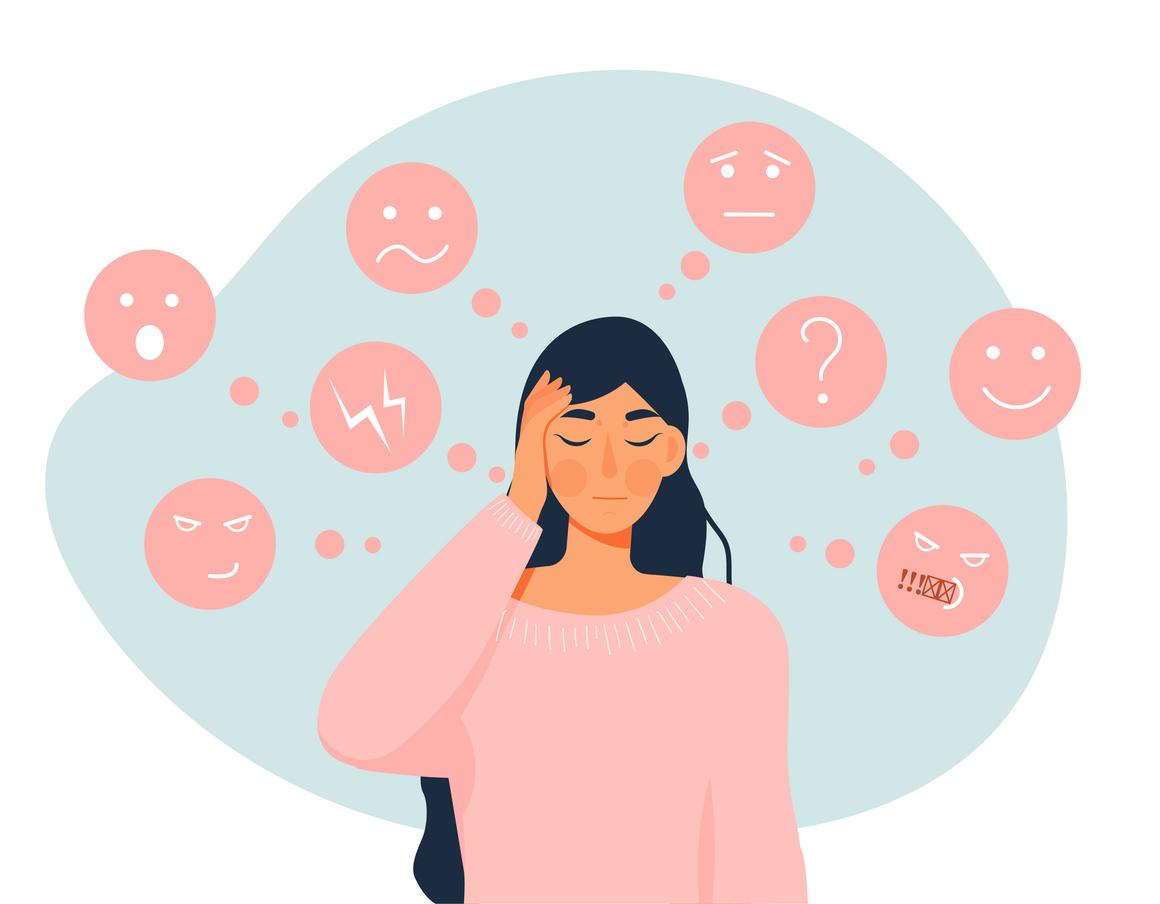During the Paris Santé Femmes congress, we had the opportunity to speak with Dr. David Hamid, a gynecologist in Strasbourg, on a subject that affects many women: premenstrual syndrome (PMS).

Why Doctor: What is premenstrual syndrome?
David Hamid: These are all the physical and emotional changes or at least those related to the behavior of a patient as her cycle approaches, as her period approaches.
You are talking about an emotional aspect, what is it?
We are governed by our hormones and in PMS we reach the peak of a certain type of hormones that are secreted, the effect of which can result, from a behavioral point of view, in hyper irritability, or conversely, a depressive state just before menstruation, with not sleeping well, being exasperated by everything etc. It’s a bit like having turned the engine button to full speed.
Some women will have a multiplied effect on their moods, emotions and everything that is characteristic of the period before their period compared to others.
What hormones are involved?
In this first phase of the cycle, it is the estrogens that flood the person. Estrogens act on a receptor and there are people who have much more avid receptors, more sensitive estrogens, and this induces a whole series of consequences, many reactions, because we have receptors in the brain and all over the body. If there is hypersensitivity, it will give this kind of thing.
Does hypersensitivity reflect an imbalance of these hormones?
No, not necessarily an imbalance. It’s just the fact that when you activate these receptors, some women will have a multiplied effect compared to others on their moods, their emotions and everything that is characteristic of the period before menstruation.
Women may experience chest tension, sometimes painful in the form of congestion, swelling of the belly, etc.
And the physical elements?
Women may have chest tension, sometimes painful in the form of congestion, a swollen belly, the impression of retaining by literally swelling, they may gain weight because there is an effect on renal filtration. All of these are part of the physical symptoms of premenstrual syndrome. It is not linked to an imbalance, it is simply that the body reacts excessively in some people compared to others.
At what point can this excess become problematic?
When it ends up having an impact on the quality of life. For the relational side, it is when the woman can no longer think calmly, can no longer work, sleep, support others… Then physically, it can result in discomfort, significant pain at each cycle where she will be forced to avoid a certain number of activities.

The simplest treatment is to block the activity of the ovaries by means of a pill.
Who to consult?
There are some women who manage to manage these symptoms, find ways to accommodate themselves and know that it is temporary. But in some cases, it can be a real problem and you need to consult. You need to check that there are no hormonal imbalances that increase these kinds of signs and then that there are no ovarian pathologies that promote them.
What are the treatments ?
The simplest treatment is to block the activity of the ovaries by means of a pill, or sometimes, to treat symptomatically. For example, when the main discomfort is chest congestion, the counterbalance of the eggs is provided.excess estrogen by progesterone.
This can set in as early as the first period as a characteristic of the person’s cycle.
Are there periods of life that promote excess PMS?
Unfortunately, this can set in from the first period as a characteristic of the person’s cycle. Weight gain can also lead to a resistance phenomenon that will increase these kinds of small symptoms that were discreet at first and then become more significant. The period after the forties, when ovulations are less regular and less frequent, also favors this because women will mechanically have a lack of progesterone with relative hyperestrogenism and this can trigger, in women who had nothing before, quite unpleasant symptoms.
Apart from life periods, are there other factors that promote PMS?
There is also polycystic ovarian syndrome (PCOS) because since ovulation does not occur, a state of hyperestrogenism can set in. Then, this can sometimes be mixed with organic pathologies, that is to say that organic lesions can generate an experience of hormonal impregnation in a painful and congestive way, we think first of endometriosis for example. We will also look for it in a woman who has a menstrual syndrome associated with emotional signs but also with painful physical signs.
Last question… How is weight gain a contributing factor?
These are the mechanisms of action at the hormonal level, there will be other interferences, notably through insulin which leads to insulin resistance which can cause the signs linked to estrogenic impregnation to “persist”.















